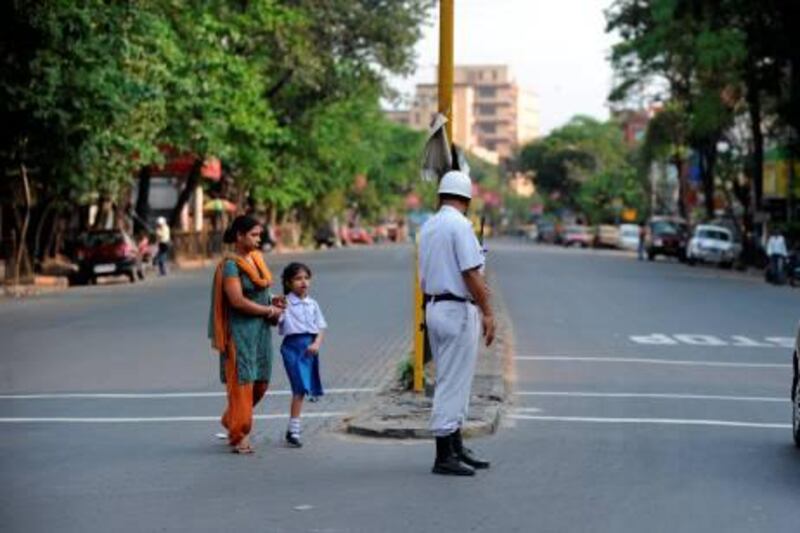NEW DELHI // From the vacant roads and deserted marketplaces in India's towns and cities, it was tempting to surmise that everybody was indoors, watching the India-Pakistan cricket World Cup semi-final on television.
Many shops pulled down their shutters early; in those that were open employees crowded around radios or flickering television sets. Auto-rickshaw drivers listened to commentary blaring out of their mobile phones as they drove.
But not quite everyone was tuned in. When the match began Harikrishna Katragadda, a rangy, ponytailed photographer in New Delhi, pulled down the blinds in his apartment and prepared to take a nap. Later in the day he planned to head out to a Hindustan classical music concert, thus bypassing the India-Pakistan game altogether.
There was a time, Mr Katragadda said, when he was crazy about cricket. "Then I realised how completely obsessed with it I was, and how I wasn't doing anything else with my life," he said. "So I took a decision to cut it out."
For the last few weeks, Mr Katragadda has been flipping rapidly through newspapers and magazines. "Every time I see cricket news and photographs, I turn the page. I don't even want to know," he said. "But I couldn't escape the news of the India-Pakistan matchup on Facebook, of course."
Dilip D'Souza, a writer living and working in Mumbai, does not share Mr Katragadda's extreme antipathy towards cricket.
"I actually like the sport. But I've become a little tired of the hype, and investing a game like this with ideas of patriotism makes me sick," Mr D'Souza said. "It's just a game, and I want to show to myself that it's just a game.
"Plus, now there's just so much cricket, all the time. It's like being on a treadmill, and it's hard to get excited," he added.
When Sri Lanka played New Zealand in a semi-final on Tuesday, Mr D'Souza added, he did his own thing. "I went out for a swim, then went out with my kids. And as I'd do with any other match, I saw a guy with a radio and I asked him for the score." During the India-Pakistan game, he said, he was going to watch a film - How to Train Your Dragon - with his children.
After India beat Australia and qualified for the semi-final against Pakistan, Mr. D'Souza helped create a Facebook group titled: "Indians who want Pakistan to win the Mohali semi-final and vice versa." The group's four moderators state that it exists "to make our point against jingoism. To say that no one needs a cricket match to prove their patriotism."
Not everyone missed the game voluntarily, though.
Many offices gave their employees half a day off to watch the start of the match in the afternoon, or, at the very least, agreed tacitly to turn a blind eye to sudden midafternoon absences.
But work intruded nonetheless into some schedules, forcing people to ignore much of the game or follow score updates on their cell phones.
In Mumbai, at the National Centre for the Performing Arts, the renowned conductor Zubin Mehta was tuning up the Orchestra of the Maggio Musicale Fiorentino roughly around the time the first innings was drawing to a close. Mr Mehta mentioned, at a press conference the previous day, that he would be getting discreet updates throughout the performance.
"I wish I could have a screen behind the orchestra to watch," Mr Mehta said. "It could be on mute. We don't even need the commentary. Actually the match would suit Mahler's First Symphony very well."
N Chandrasekhar, a Mumbai-based consultant, had set up a meeting in the town of Pune, three hours away by road, long before it emerged that India and Pakistan would meet in the semi-final. "By the time I knew that India and Pakistan would be playing, it was too late to change it," he said.
In Chennai, Deviprasad Viswanathan, an executive with a software firm, was similarly hobbled by the pressures of work. "I have to submit a report to one of our clients by tomorrow morning, so there's no way out," he said.
Then, with a grimace, he added: "And what makes matters worse is: This guy is French. He doesn't understand this madness that goes with cricket."
[ ssubramanian@thenational.ae ]





